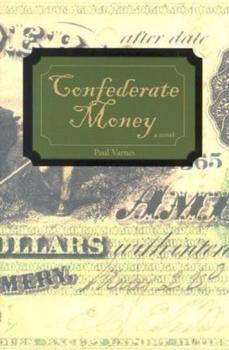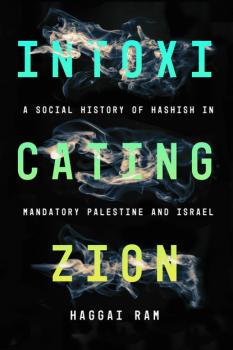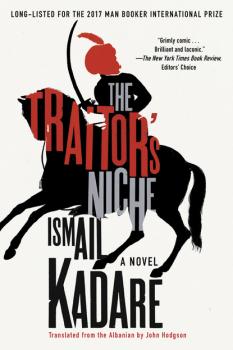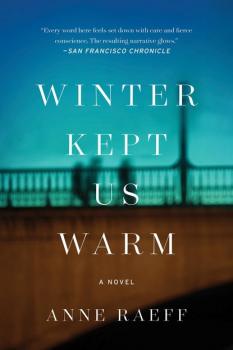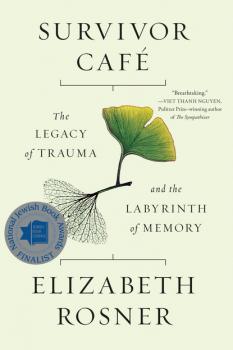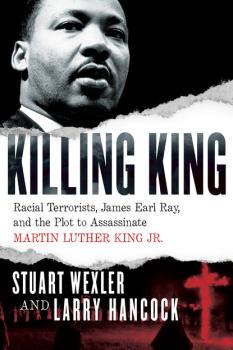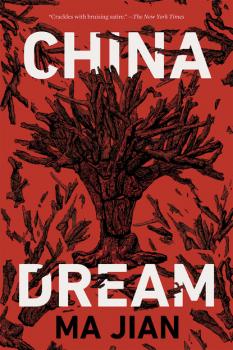ТОП просматриваемых книг сайта:
Историческая литература
Различные книги в жанре Историческая литература, доступные для чтения и скачиванияАннотация
In 1861, as this story opens with the Yankee raid on the salt works at Cedar Key, Florida, a Confederate dollar is worth 90 cents in gold or silver. The Yankee soldiers, in their zeal to destroy the important Confederate salt works, kill young Henry Ferns step-pa, who has brought Henry to the Gulf Coast town on his first train ride. From that moment on, Henry's mind is locked on revenge. His goal to find the Yankee killers leads him throughout the South and much of the North as the war spreads. He studies medicine and offers aid to whichever side he needs to move through at the time. Through shrewd dealings he manages to amass $40,000 in Confederate paper money. Henry realizes that the Yankees are going to win the war or, at best, the South will end it a draw. In either case, the Confederate money will not be worth as much as silver or gold, so he sets out to change it into specie. Henery's adventures take him into both sides of the Battles of Shiloh Church, Chickamauga, and Olustee. With his charismatic personality and keen judgment, Henry manages to thrive even as the war rages, persisting in changing his paper fortune into silver and gold. He is as generous with his family, friends, and those he perceives to be in need as he is ruthless with those he knows to be his enemies. By the time Sherman marches through Atlanta in late 1864, the Confederate dollar has declined to 28 for one in silver or gold. When Sherman reaches Savannah, its worth is 45 to one. When Lee surrenders the next April, its worth is 80 to one. One month later it has fallen to 1,000 to one. Shortly after this, Henry undertakes a daring raid on the hidden Confederate treasury to bring him to his financial goal.
Аннотация
Through the story of one family, we learn how white settlers moved into the Florida territory, taking it from the natives with false treaties and finally all-out war. The natives in Florida had arrived there not long before, coming to fill the area left by earlier natives who had died off after the first contact with Europeans. Most of the arriving white settlers had been lured there by a federal government anxious to expand its territory. Thus, both sides were newcomers anxious to «take Florida» and found themselves in conflict with each other. Paul Varnes has created a sweeping and believable story of early Florida derived from the experiences of his own ancestors. The characters in Black Creek are based on his family members a generation before those he used for his first novel, Confederate Money .
Аннотация
WINNER OF THE ACORN FOUNDATION FICTION PRIZE AT THE OCKHAM NEW ZEALAND BOOK AWARDS “A remarkable book with a stunningly original twist.” — The Times (London)[/i] This international bestselling historical novel follows two children and a mysterious narrator as they navigate the falsehoods and wreckage of WW II Germany Germany, 1939. As Germany’s hope for a glorious future begins to collapse, two children, Sieglinde and Erich, find temporary refuge in an abandoned theater amid the rubble of Berlin. Outside, white bedsheets hang from windows; all over the city, people are talking of surrender. The days Sieglinde and Erich spend together will shape the rest of their lives. Watching over them is the wish child, the enigmatic narrator of their story. He sees what they see, he feels what they feel, yet his is a voice that comes from deep inside the ruins of a nation’s dream.
Аннотация
Author Ismail Kadare is often touted as a strong and beloved potential recipient of the Nobel Prize for Literature, and in 2005 he won the inaugural International Man Booker prize Kadare's fiction offers invaluable insights into life under tyranny . . . But his books are of more than just political statement, they're fine writing by any language's standards ARCs available five months ahead of pub date, especially targeted at indie stores who support literature in translation From The Guardian : «Kadare is a writer who excels in the cataloguing of human errors and horrors, in a style and in forms that one might rightly describe as synthesised. Born in Albania, and having lived in Paris for many years, he is one of those rare writers of international reputation who has managed to avoid the pitfalls and indulgences of bland, postmodern, transcultural 'world literature'»
Аннотация
"Every word here feels set down with care and fierce conscience. The resulting narrative glows." — San Francisco Chronicle A novel of rich details and landscapes, Winter Kept Us Warm follows three friends through six decades – from postwar Berlin to Manhattan, 1960s Los Angeles to contemporary Morocco. A twisting narrative reveals their mysteries in fragments, examining their long-ago love triangle and how it changed their lives forever. "This novel is a profound success that manages to take its place in the canon of excellent war literature while also maintaining a kind of magical surreality . . . This is an astonishing read, a best-of, and a masterful treatise on enduring." — Lambda Literary
Аннотация
Named a Best Book of the Year by The San Francisco Chronicle "Survivor Café …feels like the book Rosner was born to write. Each page is imbued with urgency, with sincerity, with heartache, with heart…. Her words, alongside the words of other survivors of atrocity and their descendants across the globe, can help us build a more humane world." — San Francisco Chronicle As firsthand survivors of many of the twentieth century's most monumental events—the Holocaust, Hiroshima, the Killing Fields—begin to pass away, Survivor Café addresses urgent questions: How do we carry those stories forward? How do we collectively ensure that the horrors of the past are not forgotten? Elizabeth Rosner organizes her book around three trips with her father to Buchenwald concentration camp—in 1983, in 1995, and in 2015—each journey an experience in which personal history confronts both commemoration and memorialization. She explores the echoes of similar legacies among descendants of African American slaves, descendants of Cambodian survivors of the Killing Fields, descendants of survivors of the bombing of Hiroshima and Nagasaki, and the effects of 9/11 on the general population. Examining current brain research, Rosner depicts the efforts to understand the intergenerational inheritance of trauma, as well as the intricacies of remembrance in the aftermath of atrocity. Survivor Café becomes a lens for numerous constructs of memory—from museums and commemorative sites to national reconciliation projects to small-group cross-cultural encounters. Beyond preserving the firsthand testimonies of participants and witnesses, individuals and societies must continually take responsibility for learning the painful lessons of the past in order to offer hope for the future. Survivor Café offers a clear-eyed sense of the enormity of our twenty-first-century human inheritance—not only among direct descendants of the Holocaust but also in the shape of our collective responsibility to learn from tragedy, and to keep the ever-changing conversations alive between the past and the present.
Аннотация
Published in time for the 50th anniversary of Dr. Martin Luther King Jr.’s assassination, Killing King uncovers previously unknown FBI files and sources, as well as new forensics to convincingly make the case that King was assassinated by a long-simmering conspiracy orchestrated by the racial terrorists who were responsible for the Mississippi Burning murders. This explosive book details the long-simmering effort by a group of the nation’s most violent racial terrorists to kill Dr. Martin Luther King Jr. Killing King convincingly makes the case that while James Earl Ray was part of the assassination plot to kill King, the preponderance of evidence also demonstrates a clear and well-orchestrated conspiracy. Thoroughly researched and impeccably documented, the book reveals a network of racist militants led by Sam Bowers, head of the White Knights of the Ku Klux Klan of Mississippi, who were dedicated to the cause of killing King. The White Knights were formed in the cauldron of anti-integrationist resistance that was Mississippi in the early 1960s and were responsible for more than 300 separate acts of violence, including the infamous Mississippi Burning murders. The authors have located previously unknown FBI files and sources that detail the bounty offer as well as new forensics information regarding unmatched fingerprints and an audio recording of an admission that a key suspect obtained a weapon to be used in killing King. For years, Americans have debated issues with this crime. With Killing King , we are ever closer to an accurate understanding of how and why Dr. King was killed.
Аннотация
Thomas Merton and Ernesto Cardenal were both poets and priests, wholly committed to a life of spiritual contemplation which was never far from the gritty work that lead them to risk life and reputation in order to raise worldwide consciousness concerning issues of social justice and the abuse of human rights. From the Monastery to the World collects the complete correspondence between these spiritual men and dedicated activists, translated into English for the first time. The letters in this book, written between Merton and Cardenal from 1959-1968, give us fascinating insights into the early spiritual and political awakenings of eventual Sandinista and exponent of liberation theology Ernesto Cardenal, who was then a novice leaving the Trappist Monastery in Kentucky where he first met Merton. While making the long trip home to Nicaragua to build a utopian artist’s commune on the Island of Solentiname, Cardenal rubs elbows with some of Latin America’s greatest writers and artists of that time. In From the Monastery to the World, Cardenal is still a hungry pupil, years away from becoming the internationally renowned poet-statesman and Nicaraguan Minister of Culture. Here we see the poet and monk Thomas Merton as a wise, patient, and sometimes even humbled mentor, during the years when he was still shaping and collecting the raw materials for such writings as: “The Way of Chuang Tzu”, “Raids on the Unspeakable”, and “Conjectures of a Guilty Bystander”.Merton and Cardenal’s correspondence grants readers an audience to conversations between two men deeply connected by their vigorous endeavors toward spiritual freedom, voracious intellectual appetites, and artistic exploration despite the cultural differences, language barriers, and geographic distances which divide them.
Аннотация
[b]"Red Guards meet Kurt Vonnegut . . . powerful!" ―Margaret Atwood, via Twitter A Library Journal Best Book of the Year[/b] “[M]ay be the purest distillation yet of Mr. Ma’s talent for probing the country’s darkest corners and exposing what he regards as the Communist Party’s moral failings." ―Mike Ives, The New York Times Blending fact and fiction, China Dream is an unflinching satire of totalitarianism. Ma Daode, a corrupt and lecherous party official, is feeling pleased with himself. He has an impressive office, three properties, and multiple mistresses who text him day and night. After decades of loyal service, he has been appointed director of the China Dream Bureau, charged with replacing people's private dreams with President Xi Jinping's great China Dream of national rejuvenation. But just as he is about to present his plan for a mass golden wedding anniversary celebration, his sanity begins to unravel. Suddenly plagued by flashbacks of the Cultural Revolution, Ma Daode's nightmare visions from the past threaten to destroy his dream of a glorious future. This darkly comic fable exposes the damage inflicted on a nation's soul when authoritarian regimes, driven by an insatiable hunger for power, seek to erase memory, rewrite history, and falsify the truth. It is a dystopian vision of repression, violence, and state-imposed amnesia that is set not in the future, but in China today.

